How To Learn A Different Language
How to Learn a New Language at Home, According to Language Experts
Photo: The LIFE Moving picture Collection via Getty/Time Life Pictures
If y'all've watched all of Netflix, played every board game in your possession, and baked more than bread than you tin possibly consume, consider spending some of your newfound free fourth dimension learning (or relearning) a language. The prospect of finally mastering, say, French, guarantees hours of indoor entertainment during our seemingly never-ending imperative to stay indoors, simply experts say the kickoff step in successful language learning is to consider your motivations. "People'south goals for learning some other language can vary from something serious, like they need to motility and function in another society, to the other farthermost, of downloading a phone app and learning a new language but for fun," says Dr. Julio Torres, assistant professor of practical linguistics at University of California, Irvine, who explains that pedagogical methods differ based on learning goals. Some other affair to go on in mind are your "internal factors," like learning style and interests, because "nosotros tend to emotionally respond to something when it's meaningful to u.s. personally," says Dr. Laura Baecher of TESOL (Teaching English to Speakers of Other Languages) at Hunter Higher'south School of Education.
With everything from yoga classes to lectures currently taking identify online (often for free), this is a unique moment to learn another language with the help of applied science. "Linguistic communication learning has ever happened outside the framework of official learning online, but at present you tin easily find Zoom calls in other languages to participate in," says Dr. Sandy Flim-flam, postdoctoral research fellow at Stanford Academy and founder and producer of Vaybertaytsh: A Feminist Podcast in Yiddish. "It'due south a very special time for practicing language."
So, whether yous want to converse with your neighbour, or need to practise grammar for a distance-learning exam, we spoke with half dozen linguistic communication experts — including a director at the Middlebury Language Schools and a polyglot — to notice the all-time programs and resource for your at-dwelling house language learning.
All of the experts we spoke to say that traditional online learning programs are the about effective tool for beginning linguistic communication learners to acquire and practice some vocabulary and grammar. Unlike "pop language apps" similar Duolingo, these are often more rigorously researched, combine different learning techniques, and usually cost a good amount of money. Amidst the different programs on the marketplace, Pimsleur was highly recommended for its conversational methodology past two experts, Fox, and Vincent Perez, a French teacher at the indie travel bookstore Idlewild Books. Whereas other programs can be too repetitive and introduce words nonsensically, Perez says Pimsleur has "a lot of listening, repeating, and practicing conversations with prerecorded clips," which helps people learn in a conversational context. Fox was introduced to Pimsleur by some of her linguistic-minded and polyglot peers, and says it is "more rigorous" than other programs. In general, she notes that linguistic communication-learning programs provide a peculiarly practiced "baseline" for those learning a new language inside a language family that they already know. You lot tin learn over 50 different languages with Pimsleur, but the plan's half-dozen virtually pop languages are priced from $fourteen.95 a month.

Rosetta Stone, the language-learning software that was peddled out of mall kiosks in the '90s, is still one of the most practiced-approved programs out there. (Don't worry — the yellow boxes of CDs are long gone.) Baecher says today's version of Rosetta Rock is dissimilar from many popular language apps because it combines learning methodologies, like practicing vocabulary and listening to audio from native speakers, instead of solely depending on game-like reward techniques. When it comes to learning a linguistic communication with its own writing organisation, Sahie Kang, who formerly worked at the Defense Linguistic communication Plant Foreign Linguistic communication Center and is the countdown manager of the Middlebury Language School of Korean, says she first encourages students to get familiar with the characters' sounds. "Rosetta Stone has a speech recognition tool that compares your speech and native speakers' with a word or longer sentences, and so you tin correct your pronunciation or emphasis from the beginning" she explains, adding that it'southward "not the end of the learning of whatever language, it is just a starting point." Information technology's besides worth noting that while Rosetta is a bit less expensive than Pimsleur, information technology offers about half as many languages and has less of a focus on conversation.

A couple of experts suggest looking for monolingual language-learning resource, which are more tailored for the language you're learning. Kang stresses the importance of learning from native speakers, and points to Talk To Me In Korean equally an example of a basic language-learning program started past Korean speakers. "In every linguistic communication there is a typical greeting exchange between people, so this site offers an introduction to elementary, basic exchanges that you can memorize, which is a proficient way to give students basic language exercises," she says. Talk To Me In Korean has some free courses, but requires a monthly or yearly subscription for more comprehensive resources.
Our experts didn't totally write off pop language-learning programs like Duolingo (which is free, only includes a premium subscription). Many suggest that you utilize the app equally a starting point with a combination of unlike methods, especially since it primarily depends on translation and game-like learning techniques. "Duolingo is bang-up for learning some idiomatic expressions and introducing vocabulary, because at that place'southward a lot of do and repetition, but information technology'south not going to requite you the pragmatics," Baecher says, significant you won't learn where to use dissimilar words in context. Similarly, Torres says apps are 1 manner to acquire vocabulary, but since linguistic communication is learned in chat past "authentic exchanges where you're producing meaningful messages," the apps lack sufficient linguistic communication context. "Something is amend than nothing, and so looking at an app and learning words is a place to start, merely depending on your goal, you will need to seek more than interaction opportunities," he explains.
Baecher also notes that Duolingo is vastly more popular than other apps considering information technology has a gradual learning curve "and then people experience a lot of success." In that location'due south a steeper learning curve with Babbel, so people oft terminate before, but "those who stay with the app actually acquire more linguistic communication, because it demands more," explains Baecher. You can effort the first lesson in each of Babbel'south xiv languages for gratuitous, and subsequently at that place'south a monthly subscription cost, starting at $12.95 for one month or $viii.95 for three months.


Even in the offset of language learning, all of our experts recommend practicing language skills through chat. "Deep learning opportunities emerge when language learning occurs through conversation considering of feedback," says Torres. "If the learner cannot limited something, then the more skillful interlocutor tin provide feedback in the moment, and correct or help the learner figure out what they want to say." Baecher agrees that feedback to error is essential, especially in the offset of linguistic communication learning, because it helps prevent fossilization, where "we persist in using an inaccurate or incorrect grade, so much that it becomes role of our language, and it's very hard to unlearn it."
One style to practice conversational linguistic communication is with a teacher. Yankl-Peretz Blum, projection manager at YiddishPOP and a polyglot who has studied over xx languages, says that right at present he's learning Palestinian Arabic with a private instructor on the website italki. "We just shmooze, the instructor rarely talks to us virtually language, and instead nosotros merely talk about things, similar our lives or a Television set show, in the language," he explains. When finding a instructor, Blum stresses the importance of finding someone who is capable of speaking on your level, and on italki y'all can watch introductory videos and accept a sample lesson with teachers before committing. Plus, he says that the prices will seem inexpensive past American standards (ranging from $6 to $25 for an hr lesson) because many teachers are working abroad. There are also a bunch of group classes (many of which have shifted online during quarantine), like the seven-week courses that Perez teaches at Idlewild. "At our classes, it's okay to make mistakes, it's okay to struggle, and past emphasizing that during course, nosotros finish upward having people experience more than comfortable," he says.

When it comes to conversing through language exchange, Hi Talk, Talk Abroad, languageexchange.com, and Dialup — including their of-the-moment Quarantine Chat service — were all recommended by our experts. "A linguistic communication exchange gives y'all the opportunity to practice that skill with a person on the other cease who is expecting you to sound a little scrap like an idiot, and that'southward okay because they're also going to audio a little chip like an idiot when they speak your language," says Fox, who believes conversational exercise is the most of import office of language learning, and recommends Dialup. In order to make the most of a language exchange, peculiarly if you're both beginners, Baecher suggests that partners make up one's mind on something to read ahead of time, and then try to talk about information technology together. "Having that one-on-one chat vastly increases your corporeality of linguistic communication production, because you're going to be forced to produce a lot more in guild to converse," she says.

All of the experts we spoke to concord that watching movies or Television shows tin can be a fun method for language learning. Blum specifically recommends watching Netflix original content, considering information technology is all dubbed and captioned for the 20-plus languages that Netflix supports, so you lot can "pick the same serial and watch it in several unlike languages with original subtitles, instead of depending on translations," he explains. Plus, Perez recommends the free Chrome extension, Linguistic communication Learning with Netflix, which allows you lot to overlay subtitles in ii languages and auto-pause at the end of sentences. "Even if you need to constantly break and it seems tedious at first, you'll gain momentum quickly, especially when you're interested in what you're watching," he says.

Another online tool for language learning is BrainPop, an educational website with more than than 1,000 short blithe movies in English (including BrainPop Jr. for younger learners), Spanish, French, Hebrew, and Yiddish. Although BrainPop is designed to teach students K–12 about classroom topics and isn't solely a linguistic communication-learning resources, Baecher says it'south a good tool for language learning because "it has lots of brusk videos with a reduced vocabulary load and simple grammatical structures." Typically, a BrainPop subscription costs $220 a yr, but during the coronavirus pandemic, the visitor has made their resources bachelor free of charge for schools, teachers, and students.
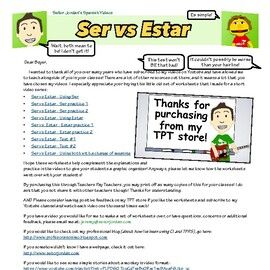
Since some people are more visual or auditory learners, some other way to learn grammer and vocabulary is through educational YouTube videos. While videos vary in quality, Torres recommends Señor Jordan for Spanish grammar explanation. "Since he's a high-schoolhouse teacher, he breaks things down very clearly for students, which is helpful if you're having trouble agreement a particular structure," he says. Yet, Torres cautions that "learning about how the language works is very dissimilar than using the linguistic communication in conversation." The Señor Jordan videos are free on YouTube, but you can support him by buying the accompanying worksheets online.

"People are so excited almost apps or things on your computer, but don't be afraid of books," says Fob, who has found textbooks to exist beneficial for her learning. Blum specifically recommends a French textbook company chosen Assimil, which comes with hours of recorded dialogue and teaches grammar through conversations. "There are grammatical footnotes next to written dialogue sentences, which is more of a pocket-sized detail, and so the main thing is looking at the language itself in context," he explains. Blum has used the book to teach himself well-nigh ten different languages, and the visitor has English versions of their textbooks too.
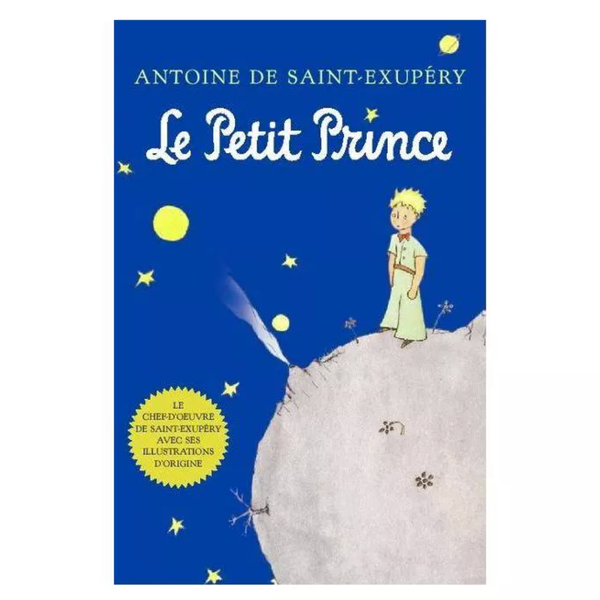
When y'all're starting to read, Baecher recommends accessing texts at an easier Lexile level. "Reading something a little more challenging is going to expand you out of your basic fix of vocabulary, which tends to repeat over and over in an app, and bring you into more natural language," she explains. For English language learners, Baecher recommends the gratuitous website Newsela, which rewrites news stories in attainable linguistic communication, merely starting with classic kids books in another language also works, like reading Le Petit Prince in its original French banner.

Despite the connotation of rote learning, all of the experts nosotros spoke to hold that flashcards can be a part of vocabulary review. "For initial learning and recognition, Quizlet works," says Baecher, of the gratis, user-generated flashcard site. "But information technology won't exist retained until it's built into someone productively using it," she adds, suggesting that students also review words by writing brusque sentences. Quizlet allows students to review flashcards through more interactive games, which is why Perez uses the site with his classes. Whenever possible, Torres encourages students to brand flashcards with images — which is available on Quizlet Plus for $one.99 a calendar month — because going from one language to some other is translation. "The translation approach isn't bad, but you lot want to ultimately be able to learn and encode the information in a different manner, and retrieve it in a different way," he explains.
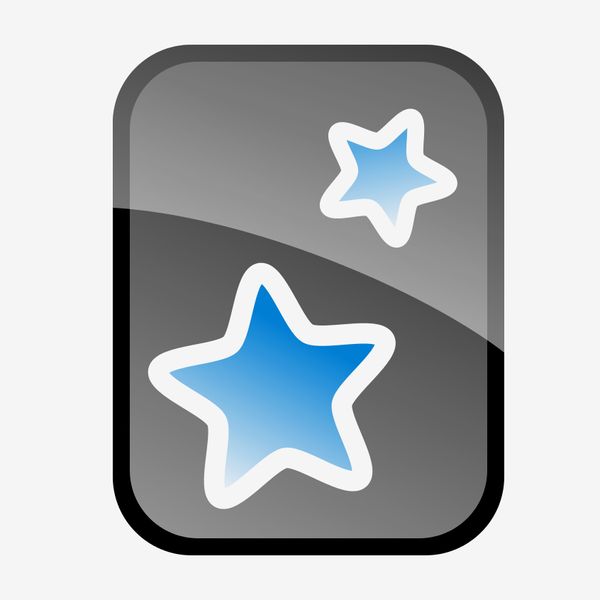
When information technology comes to flashcards, Blum and Fox both vouch for the application Anki — which is free online and on the Android app store, but costs money for iPhones — calling it "very powerful" and "amazing," respectively. Anki depends on the technique of spaced repetition, where you lot encounter newer and more difficult cards more frequently, and older and less difficult cards less frequently (which is also a characteristic of Quizlet Plus). "Information technology's an advanced tool and it took me years to figure out how to apply information technology well, only it has a decent online community where yous tin troubleshoot," says Blum, who'southward been using the app for fifteen minutes a day for over ten years. "When people miss a few weeks or months, they become discouraged, only I call up fifty-fifty if y'all don't stick with it for years similar I accept, information technology can exist useful for practise." Similarly, Fox loves Anki for the robust shared decks, and your ability to personalize and add images to cards.
The Strategist is designed to surface the almost useful, skilful recommendations for things to buy across the vast e-commerce landscape. Some of our latest conquests include the all-time acne treatments , rolling luggage , pillows for side sleepers , natural feet remedies , and bath towels . We update links when possible, just note that deals can expire and all prices are subject to alter.
Source: https://nymag.com/strategist/article/how-to-learn-languages-at-home.html
Posted by: sparksmounten.blogspot.com


0 Response to "How To Learn A Different Language"
Post a Comment